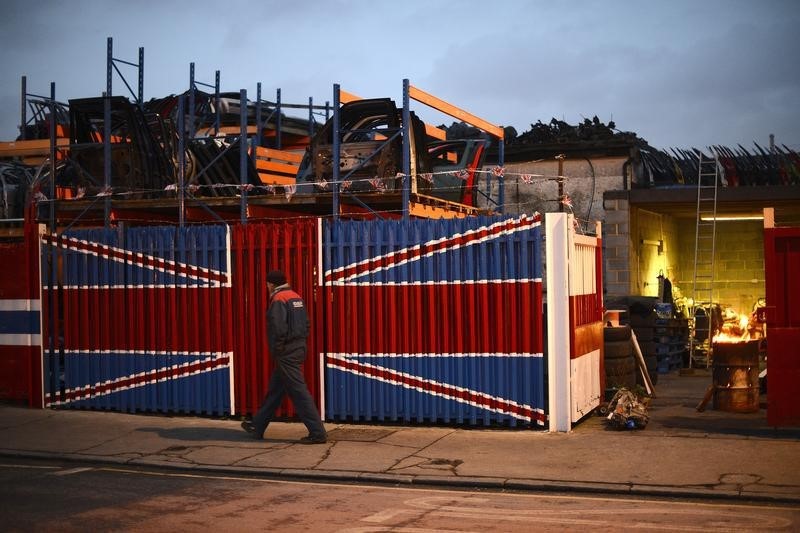By William Schomberg and Andy Bruce
LONDON (Reuters) - Britain's economic growth probably slowed in early 2015, official data showed on Friday, potentially making it harder for Prime Minister David Cameron to persuade voters to trust his party to run the economy.
Industrial output barely grew in February, hit by a big fall in oil and gas production, and construction output shrank, according to official data that was weaker than forecast.
The numbers mean overall economic growth in the first three months of 2015 is likely to show a slowdown when figures are published nine days before the May 7 election.
The pound fell to its lowest level against the dollar in five years after the data. Government bond prices rose.
"It's now looking like the economy slowed, and possibly quite markedly," Chris Williamson, chief economist at financial data firm Markit, said.
Britain's economy grew by 2.8 percent in 2014, faster than any of the world's other big advanced economies.
But even before Friday's data, there had been signs the pace of growth slowed in early 2015, including a contraction of Britain's dominant services sector in January.
The figures did not mean the economy would hit the skids this year - ONS figures have generally been weaker than private sector surveys on manufacturing - but they might prompt the Bank of England to keep interest rates at a record low, economists said.
However, the timing is awkward for Cameron and his Chancellor George Osborne, who have centred their message to voters on their "long-term economic plan" to restore Britain to health after the financial crisis.
In February, industrial output rose by a monthly 0.1 percent while manufacturing rose 0.4 percent, the Office for National Statistics said. Compared with a year earlier, industrial output was up 0.1 percent and factory output was 1.1 percent higher.
Oil and gas output plunged 12 percent in year-on-year terms in February, the biggest yearly fall since August 2013 and possibly reflecting the fall in global oil prices.
Construction output fell by a monthly 0.9 percent in February, compared with forecasts for a rise of 2.0 percent in a Reuters poll of economists.
"It is too early to be highly pessimistic," said Simon Wells, an economist with HSBC (LONDON:HSBA), noting a strong performance by the services sector in February could change the picture.

"Still, the early signs are not good. January was poor across the board and today's data show a weak February for one fifth of the economy," he said.